Last week I was given the opportunity of interviewing Karie Lee Knoke, the phenomenal runner-up on Season 9 of History Channel’s Alone.
Karie Lee is a primitive/wilderness skills instructor, an herbalist, and an energy-medicine practitioner. She comes from a long line of pioneers that homesteaded in the Pacific NW. She has lived completely off-grid for over 20 years, in a yurt, not connected to anything. She collects rainwater and firewood, has a small solar system and a garden, and she forages and hunts for most of her food. She is opening a Survival School called Sacred Cedars Wilderness School in the fall of this year. You can find Karie Lee on her website, Instagram and Facebook (@KarieLeeKnoke).
The interview was recorded over Zoom and posted in full on our Youtube Channel (embedded here). A transcription is provided below.
Some answers have been edited for clarity in the written form, and some back-and-forth conversation between Karie Lee and myself has been omitted from the written transcription (but is included in the video).
1. Did you do any extra training before going on Alone? How much time was there between finding out you were a contestant and being dropped off?
You could say I’ve been training for the majority of my life … fifty years. Ever since I was eight years old, I wanted to go out into the wilderness with nothing but my knife and survive, just like that boy on My Side of the Mountain [by Jean Craighead George]. I read that book when I was eight and said, “ah, that’s what I want to do.” Ever since then, I’ve been glomming on to any sort of information I could find, and it wasn’t until my adult life that I got hooked and found the primitive skills gathering circle. That’s where I started diving into learning a lot of really cool stuff about the wilderness and how to live off the land. When I was a kid in the 70s, my parents were live-off-the-landers—we did a lot of camping and backpacking. I just kind of grew up that way.
[The Alone contestants] found out the first week of July, a year ago, who was going to be on the show. That gave us two months to get all of our gear, do any conditioning or training with our bodies, make sure the rent is paid … to prepare yourself to be gone on a long trip you have to slate off six months of your life to make sure all those loose ends are tied up. It doesn’t give you a whole lot of time to prepare. We found out about our location three weeks ahead of time, so we didn’t get a lot of time to do a lot of research.
2. Given you already live off the grid, how much more difficult was Labrador versus everyday life? What made it harder?
Not having food stored away was definitely harder. When you live off-grid you’re hunting in the fall, you gather your greens and berries in the summer, and I have a garden. You can sort and store things in a freezer year-round. So, definitely, the hardest part is procuring your food. You’re also spending so much energy. I dug for a week in that clay to build my shelter. They showed me moving in on day 15, but I actually started digging on day 15 and moved in on day 21.
You would think we’re burning so many calories and working more than we are at home, but at home I’d be digging in the garden and putting in the beds, getting my firewood for winter, getting my yurt ready, and procuring my food. So, I’m basically doing the same things but based on a smaller scale. It’s not a whole lot different. It’s simpler too, as I didn’t have a chainsaw. I actually broke off branches [instead of chopped wood]—I had a stick fire, which was super easy. I was not spending hours cutting firewood; that’s a huge waste of calories. You see a lot of the guys with big logs cutting and chopping. I’m like, “No.” (Laughs.) I just needed enough heat to warm up and to boil my water. It was hard to find hot, good burning firewood.
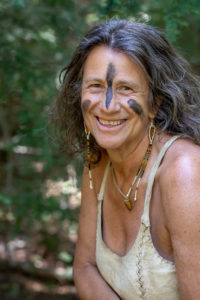
3. Did you grow up with wilderness living or was it something you fell into?
When I grew up, I went to college and did the whole career thing, and after five or eight years I was like, “What the hell am I doing?” I quit all that corporate world stuff and moved to Sandpoint, Idaho [where she is now] so that I could be closer to nature and be up in the mountains where I felt the most comfortable. I started a brand-new life here. In 2006, I had the “opportunity” (one of those life challenges) to start my life all over, so I asked myself, “What do I want this to look like?” I already had my yurt, so I put it up and decided it would be my shelter. I was incorporating primitive skills as much as possible into my lifestyle but still wanted to be part of the modern world. I just had that chance to go back to my childhood, which is what I fashioned it after. I didn’t have any responsibility, no kids, so I could do whatever I wanted … so I did.
4. You talked about this a bit in the show, but how do you maintain such a positive attitude?
I’m an energy-medicine practitioner. I work with clients all the time, and when you’re working with negative emotions, your body’s energy gets really weak. It’s not like I didn’t struggle, but having a positive attitude and singing songs put me in a happy place. If I woke up moaning and groaning, I’d sing the Cree morning song—it’s really upbeat, and I’d get that in my mind and my body. And then I would turn on the camera.
I was also doing an energy routine and really working with the meridians in my body to get my vitality up and my kidneys. That was really helpful and boosted my immune system.
5. Have you done any wilderness/survival living in other countries, aside from the US and Labrador in Canada? Would you be interested in that for a vacation or would you more likely go to a resort and lie on the beach?
Sometimes I go to Costa Rica and lie on the beach, but for survival locations, one time I went to Alaska. My partner (at the time) and I built a kayak and travelled all down the Inside Passage—500 miles—for three months. We lived off the land as much as we possibly could.
6. This is a question that always interested me about the show, and I don’t think it’s ever been asked: I know there is a first aid kit provided, but are the women contestants on the show provided pads and tampons or do you have to deal with it “medieval style?”
(Laughs.) No, you’re allowed feminine hygiene as long as you don’t repurpose them (like make a pillow out of them).
7. What was your favourite experience while in Labrador?
The snowball fight! That was me against myself, but I think I won. We had that three-day snowstorm, and during the storm, I had the personal experience I wanted [from Alone]: I wanted to be in my shelter with a nasty storm outside, experience that harshness. I wanted to be warm in my shelter and have some food to boot. I predicted the storm a month ahead of time, and it came in exactly when I predicted. I got that squirrel [a few days before] and I actually saved it because I knew that storm was coming, and I wanted to have it then.
During that storm, I decided I could leave and be satisfied with what I’d done [on Alone]. I was thinking about tapping, so I was eating up my food, as I still had rations, and when I came out [the next morning] to that sunny day and saw the snow I was like, “Oh my god, this is overwhelming.” I even had the thought that, “Maybe I’m done.” But I said, “No, I can deal with it … I’m just going to have fun and live moment to moment.”
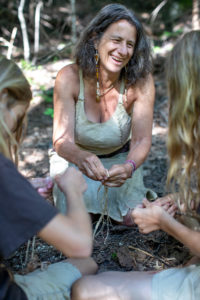
8. Did you get to spend time in Newfoundland before the show?
No, we just had a two-week orientation ahead of time. I didn’t have time to explore.
9. Someone on the website Reddit researched where all the campsites were in Season 9 and they were pretty close together. Did you ever hear noises from the other contestants? Like sawing or swearing?
No, and I’d like to see that map because when we [the contestants] were all back, we pulled up a map and each of us put a dot where our sites were, and there were big gaps.
We’re all carrying GPSs, and if we get out of line it beeps at us—like in Hunger Games. We had Geo fences. In a situation where we were actively chasing a bear, we could continue into someone else’s territory, but if we lost it, then it’s done. There are strict guidelines about [leaving your area].
10. You said on the show you want to start a Survival school. Can you tell us about how that’s been going?
I’m in the process of moving the big yurt to the property. It’s scheduled to be rebuilt in two weeks. My driveway had to be gravelled and a culvert put in as there’s a seasonal creek. We’re working on the infrastructure. The campground is mostly put in with trails connected to each campsite. I’m hoping to have a soft opening in the fall, hopefully in November. I’m teaching a drum class in November, and then we’ll have the grand opening at the beginning of next year. There are a lot of irons in the fire.
It’s open to having guest instructors come. There will be a lot of variety. Online courses, weekend workshops, and week-long excursions where we’ll go out into the wilderness. Eventually, there will be a year-long program where you go out once a week every season. The program builds from one season to the next. For example, we might do a lot of foraging for medicine in the spring, berries in the summer, and in the fall, we’ll do some hunting and trapping. Then, in the winter we’ll go out and make a shelter and eat the food we’ve been harvesting all year.
I’ll be teaching the spiritual side of natural skills and how to connect to the land.
It’s called Sacred Cedars Wilderness School.
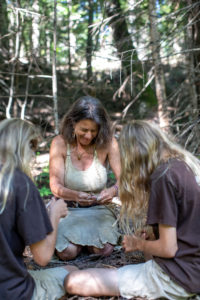
11. If someone wanted to live off the grid or even spend time doing wilderness living, do you have any tips on where they should start? And what skills should they learn?
Primitive skills (the skills our ancestors used, though maybe not the exact same ones) and wilderness skills, no matter where you live or how you want to live, really get you in touch with the primal source of yourself that you may not even know you have. There’s a lineage inside of you and memory in our DNA, and [being out in the wilderness] really brings up that primal memory that we all have. And it’s really important to keep that alive. Not just the traditions but within yourself.
12. Living off-grid, do you get a chance to watch a lot of movies or shows? If so, do you happen to watch anything post-apocalyptic, and if so what’s your favourite?
For me to watch a show I have to stream it, and I typically don’t have time until winter. I watched Alone, and that’s pretty much all I’ve watched in the last couple of years. But there was a movie with Viggo Mortensen—The Road. I found that really intriguing and I’d hate to see the world come to that point. What struck me about that movie compared to [other post-apocalyptic films] was that it was closer to our timeline, and in seeing how the trees had fallen. I’ve seen that here in the last two years, as, because of climate change, we’re getting more and more massive windstorms. These big, huge Ponderosa pines are falling down. It’s very devastating to houses in the area. So, when I saw that, I was like, “Wow, that’s what happened in The Road.” I made the connection that if we don’t change what we’re doing on this planet that [movie] wasn’t very far-fetched.
13. Do the contestants on Alone hang out at all or keep in touch?
As soon as we found out who was going, we immediately started a WhatsApp group! We’re constantly in communication. We want to get together and do a reunion trip. I’d like to go back and explore each other’s sites; hike from one to the next or take a boat down the river. To explore and really enjoy being there.
It wasn’t like we were out there to compete with each other. We were really supportive. When you’re out there you’re really only competing with yourself.
15. You did some singing on Alone – is music a big part of your life?
I like to sing—I’ve never been a person that’s been very big with my voice, so I forced myself to go to these women’s singing circles that have been going on for 20 years. That really helped me to get my voice to open up. I love to sing, but I know I don’t have the best voice. (Laughs.)
16. What food did you miss the most when on Alone?
When you’re out there you have these amazing cravings. I’d negotiate with my belly a lot. I’d say, “I want a wild bison burger, medium rare, with bacon, blue cheese crumbles, and sweet potato fries on the side. … but not today.”
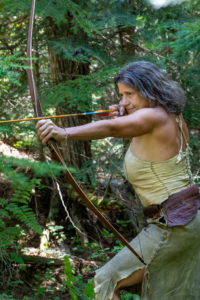
Thank you so much to Karie Lee for taking the time to chat with me. It was fascinating to get to meet the person I’ve been watching survive in the wilderness, and now I have an even deeper appreciation of what the contestants went through. If you’re interested in survival, keep an eye on Karie Lee’s socials and her survival school (links below).
Karie Lee on Instagram: @Karie_lee_
Karie Lee on Facebook: @KarieLeeKnoke
Sacred Cedars on Facebook: @SacredCedarsWildernessSchool
Website: KarieLeeKnoke.com
To contribute to the Sacred Cedars GoFundMe
Wilderness School support video – https://youtu.be/PzTmtq5Td7g

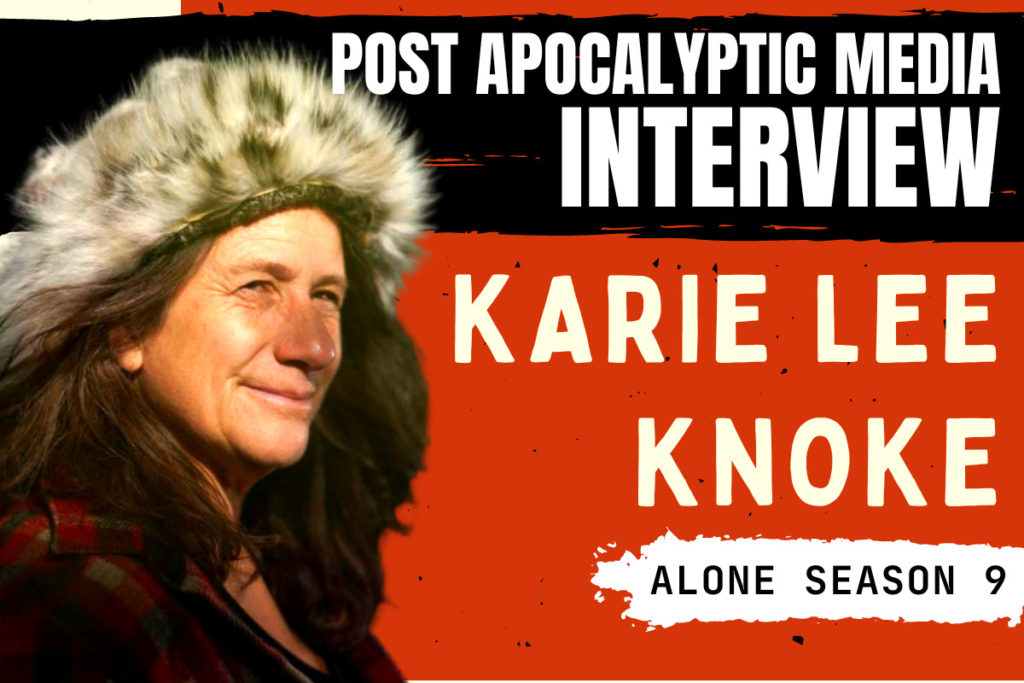
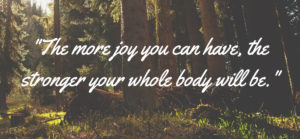
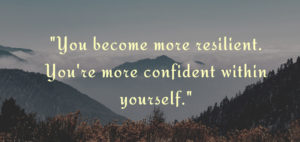
Leave a Reply